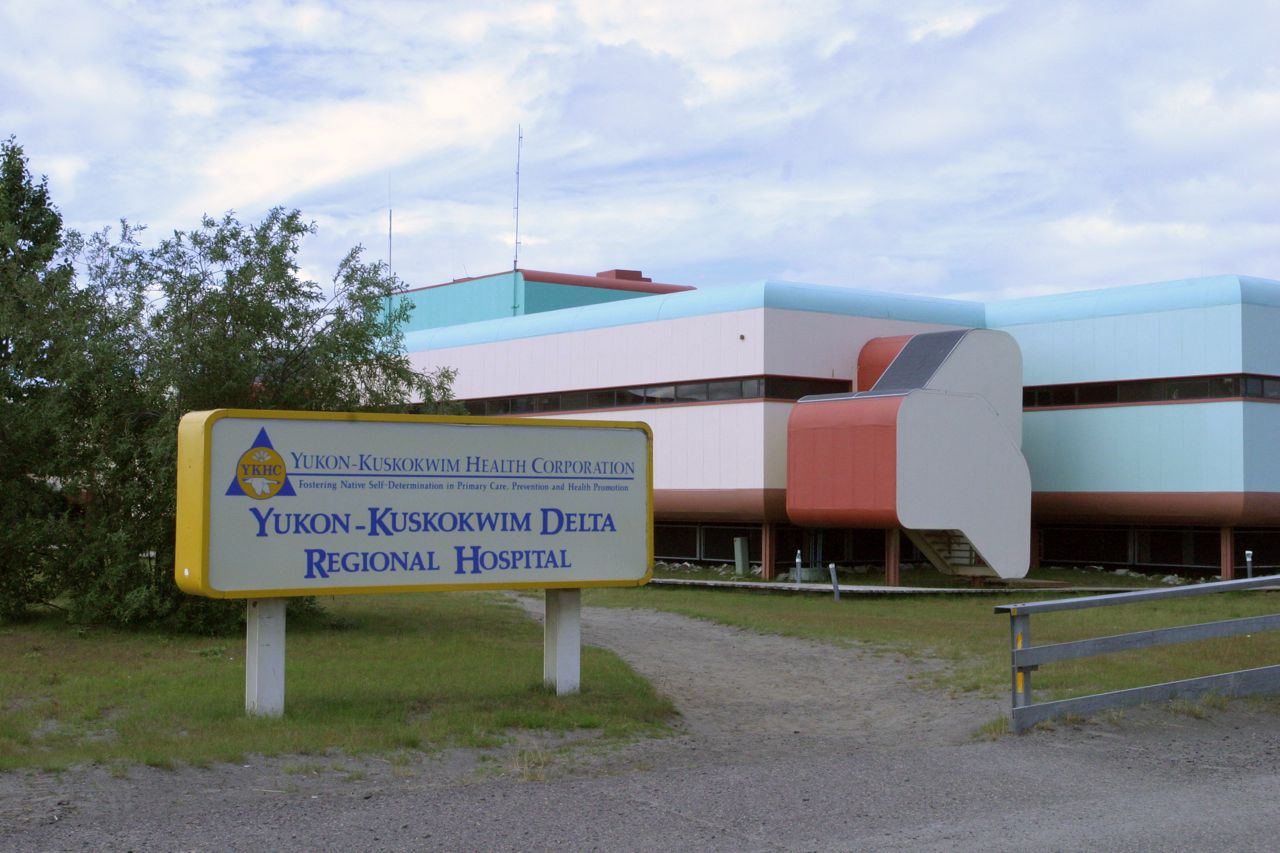Dealing with erosion is complicated. Who can help?
Navigating a web of bureaucracy is one of the biggest challenges eroding communities face when pursuing relocation. Here's how Akiak's handling it.
Wildfire smoke’s health impacts lingered for years, according to Montana study
This summer has been filled with smoke for communities near the Swan Lake fire like Sterling and Cooper landing. So what does this mean for people's lungs and what are the long-term health effects?
Many Alaska villages have no local police. How do we keep them safe?
The Anchorage Daily News reports 1 in 3 Alaska villages lacks adequate law enforcement. We'll discuss how to ensure the safety of all Alaskans, both on and off the road system on the next Talk of Alaska.
Nanwalek is rapidly running out of water
A Kenai Peninsula village is rapidly running out of water. Low snowpack and little rainfall has led Nanwalek to declare a water emergency.
Water shortage looms in Chignik Lagoon
A boil water notice has been in effect since July 2. As of Thursday, residents had only 5,000 gallons of drinkable water left.
Experts: Heat and drought, not spruce beetles or leaf miners, turned Alaska forests into kindling
There are more insects in the forest than other years, but experts say climate is the biggest factor for fires.
Alaska rolls back air ambulance ‘membership plan’ regulations
Alaska is taking a step back from regulating the membership plans marketed by air ambulance providers. State regulators say it’ll cut unnecessary red tape. But consumer advocates aren’t thrilled.
Renewable energy in Alaska
From hydropower to solar energy, renewable and alternative energy projects are taking root statewide. What are the challenges -- and emerging opportunities -- when it comes to developing new power sources in the Land of the Midnight Sun?
Rising ocean temperatures intensify paralytic shellfish poisoning levels in Southeast waters
Over the last few months levels of paralytic shellfish poisoning in Southeast Alaskan shellfish have been very high. A coalition of tribal organizations is tracking PSP levels to make sure subsistence users can safely harvest shellfish.
Curyung Tribe to leave BBAHC
The tribe said it decided to withdraw, in part, due to issues with patient care and the health corporation's insufficient response to their concerns. The earliest effective date for the withdrawal is May 2020.
New water tests show Bethel lead and copper levels meet federal standards
A large infrastructure project last fall is the suspected cause of elevated copper and lead levels discovered at some locations in Bethel’s City Subdivision.
Students in Mertarvik will go to school in evacuation center
This school year, some students in Newtok will leave behind most of their friends. In October, 21 families from Newtok will relocate to their new village, Mertarvik, and kids in those families will have to transfer schools.
Newtok partners with military to escape coastal erosion
Newtok is the nation’s first community to relocate due to climate change, and the military is lending a hand. U.S. troops are working side by side with Newtok residents to build new homes.
Newtok’s infrastructure erodes like the ground below it
The village of Newtok has been waiting over two decades to move to its new home in Mertarvik. As they’ve waited, their public health infrastructure has eroded like the ground beneath the village.
Bethel water testing shows lead and copper levels exceeding federal standards
Bethel residents are being advised to take precautions after elevated levels of lead and copper were found in the city’s drinking water from select locations. The city is awaiting results from additional tests and discussing solutions.
Nome museum exhibit embraces Native food traditions, new and old
A new multimedia exhibit at the Carrie M. McLain Memorial Museum until October showcases traditional Native foods and the ways they are prepared throughout the Bering Strait region.
The work of eradicating stereotypes
All cultures need a correct reflection of who they are in media. There has been progress, such as the new PBS kids program Molly of Denali, but a lot of work remains. We'll discuss the good, the bad and the 'still needs to be changed' on the next Talk of Alaska.
Can trauma be passed down through DNA? Researchers and Hoonah residents search for answers.
It’s well known that traumatic experiences can have lifelong impacts on health and well-being. But it’s possible that those effects can last longer than a single lifetime. A new study asks whether the effects of trauma have been passed down genetically in Tlingit families in Hoonah.
Western Alaskans concerned about Graphite One project’s impact on subsistence
Graphite One Resource’s proposed graphite project in Western Alaska seeks eventually to become the largest graphite mine in the country, with a life of at least 40 years. Before it can set up a mine, however, the company needs to gather more environmental data and continue community outreach with local residents, who are concerned about how subsistence resources will be affected.
Rural public health
Access to health care in rural Alaska can be a challenge. How will reductions in medicaid and other funds affect health in rural communities?
























